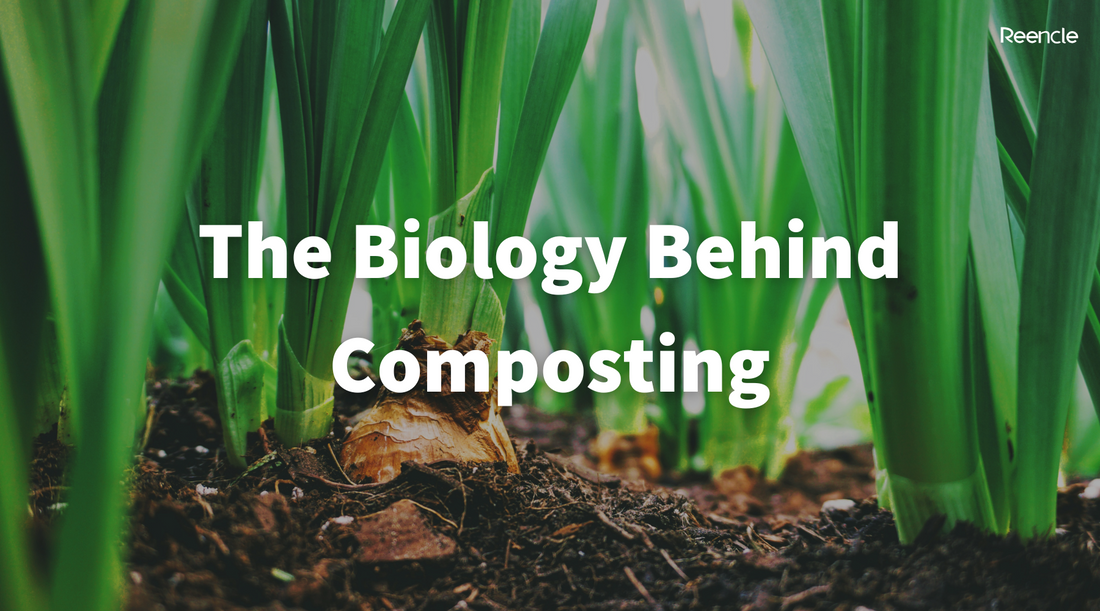Composting is a fascinating natural process that transforms organic waste into nutrient-rich humus, commonly referred to as compost. While many of us are aware of the benefits of composting for our gardens and the environment, the underlying biology behind this process often remains a mystery. In this blog post, we will delve into the intricate world of composting and explore the biological mechanisms that drive its success.
The Basics of Composting
Composting is a form of recycling that mimics nature's own decomposition process. It involves the breakdown of organic materials, such as kitchen scraps, yard waste, and animal manure, into a stable and nutrient-rich end product called compost. This compost can then be used as a valuable soil amendment, providing plants with essential nutrients, improving soil structure, and promoting overall soil health.

The Role of Microorganisms
At the heart of composting are various microorganisms, including bacteria, fungi, actinomycetes, and protozoa. These tiny organisms play crucial roles in the decomposition process, breaking down complex organic compounds into simpler forms that can be readily absorbed by plants.
Bacteria: They are responsible for the initial breakdown of organic matter, breaking down simple sugars, starches, and proteins into organic acids, ammonia, and carbon dioxide. The most common bacteria involved in composting belong to the genera Bacillus, Pseudomonas, and Enterobacter.
Fungi: Fungi, such as moulds and yeast, complement the work of bacteria by breaking down tougher materials, such as lignin and cellulose. Fungi produce enzymes, such as cellulases and ligninases, which help degrade complex carbohydrates and lignin, respectively. As they break down organic matter, fungi release nutrients back into the compost pile.
Actinomycetes: Actinomycetes are filamentous bacteria that resemble both bacteria and fungi. They thrive in warm, moist conditions and play a critical role in breaking down complex organic compounds, including cellulose, lignin, and chitin. Actinomycetes are responsible for the earthy smell often associated with compost.
Protozoa: Protozoa feed on bacteria and fungi, helping to regulate their populations in the compost pile. They contribute to the decomposition process by further breaking down organic matter and releasing nutrients.
Stages of Composting
Composting can be divided into three main stages, each characterized by specific microbial activities:
Mesophilic Stage: The mesophilic stage occurs at the beginning of the composting process when the temperature is relatively low, ranging from ambient temperatures to around 113°F (45°C). Mesophilic bacteria and fungi are the primary decomposers during this stage, breaking down easily degradable materials.
Thermophilic Stage: As the microbial activity intensifies, the temperature in the compost pile rises, entering the thermophilic stage. Thermophilic bacteria, such as those belonging to the genera Thermus and Bacillus, become dominant. These bacteria thrive in high-temperature environments and are responsible for breaking down more complex organic compounds, including proteins and fats.
Maturation Stage: The final stage of composting is the maturation stage, also known as the curing phase. The compost pile gradually cools down, and mesophilic microorganisms become more active again. During this stage, the remaining organic materials continue to break down, and the compost matures into a stable, nutrient-rich material suitable for use in gardens or agricultural fields.

Composting is a remarkable biological process that harnesses the power of microorganisms to transform organic waste into a valuable resource. Understanding the biology behind composting enables us to create optimal conditions for decomposition, resulting in nutrient-rich compost that benefits both our plants and the environment. By embracing composting as part of our daily lives, we can actively contribute to a more sustainable future while nurturing the health and fertility of our soils.
You too, can begin your composting journey. Choose to compost with ease; hassle-free, odourless and fast. Get an exclusive discount of RM400 by using the promo code VIP400. Click here to order now.

